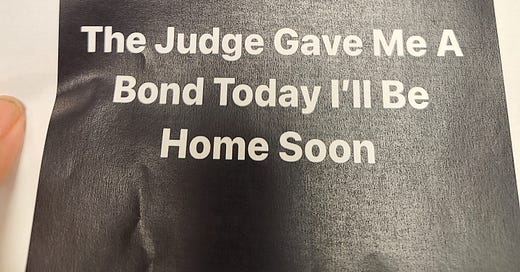A Crack In The Courthouse Marble
When Christian Eppinger - accused of shooting an Atlanta cop six times - got bond yesterday, leaders hit the roof. The process is cracked. But it isn't quite broken.
The video played for the assembled press corps this morning of a cop getting shot was grim. It’s been a day for grim videos, frankly.
Police described the scene as Officer David Rodgers got out of a police car in front of the Colonial Square Apartments. That’s Young Slime Life gang turf. Eppinger was on the sidewalk, and the subject of an arrest warrant …
Keep reading with a 7-day free trial
Subscribe to The Atlanta Objective with George Chidi to keep reading this post and get 7 days of free access to the full post archives.




